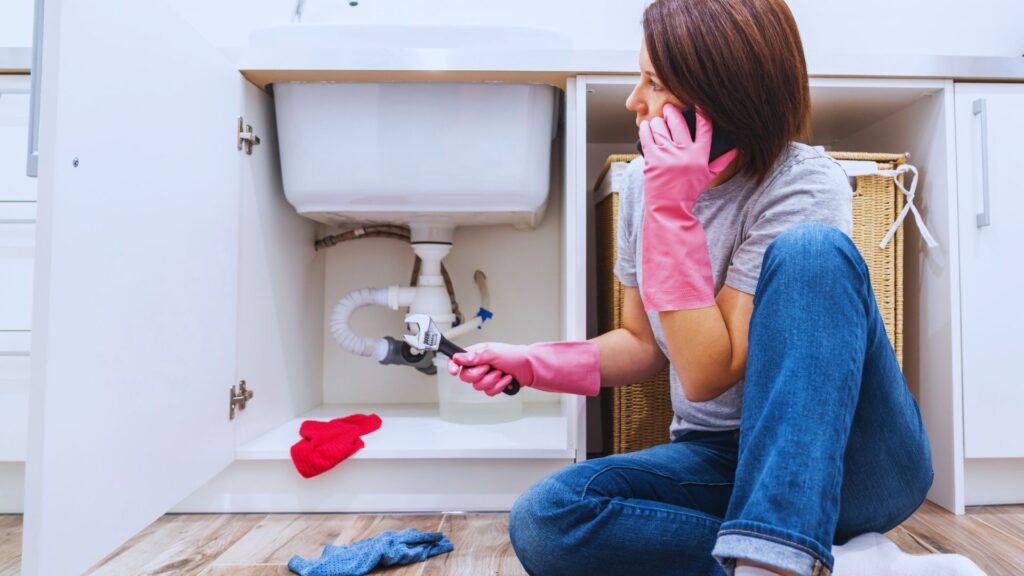Just because it’s clear doesn’t mean your tap water is safe. Hidden dangers like lead, arsenic, and microplastics may be present, even if you can’t taste or smell them. These contaminants come from various sources and can pose significant health risks if left unchecked. Don’t think your filtration system catches everything either; they aren’t foolproof. It’s on you to understand your water sources and the potential hazards lurking within. By scrutinizing your suspicions about water quality, you’ll equip yourself with the necessary precautions and knowledge. If you’re curious to learn how to achieve this, there’s plenty more to unpack and understand.
Key Takeaways
- Tap water sources can influence water quality, with municipal, well, and natural sources each having unique potential contaminants.
- Common tap water contaminants include chlorine byproducts, lead, nitrates, arsenic, and microplastics, all of which can pose health risks.
- Health risks of contaminated water can range from gastrointestinal issues to serious conditions like cancer and developmental problems in children.
- Using water filtration systems like activated carbon filters or reverse osmosis systems can help remove many harmful contaminants.
- While the EPA regulates public water systems, not all contaminants are covered and private wells lack federal regulations, emphasizing the need for personal vigilance.
Assessing Your Water Source
Before you can take steps to improve your tap water quality, it’s crucial to assess your water source. You might be getting your water from a municipal supply, a private well, or maybe even a spring or river. Each source has its unique potential issues.
If you’re on a municipal system, the Environmental Protection Agency (EPA) regulates your water’s quality, but that doesn’t mean it’s free of contaminants. The EPA tests for certain chemicals and microbes, but some potentially harmful substances can slip through the cracks of regulation.
Well water, on the other hand, isn’t federally regulated. This means you’re responsible for ensuring its safety. Wells can be contaminated by agricultural runoff, septic leaks, and naturally occurring substances like radon or arsenic.
Even natural sources like springs and rivers can be affected by pollution, animal waste, and harmful bacteria.
Common Contaminants in Tap Water
While you might trust your water source, it’s important to understand the common contaminants that could be lurking in your tap water.
First, we’ve added chlorine and chloramine, substances to water for disinfection. However, they can form harmful byproducts like trihalomethanes and haloacetic acids. If your water has a strong chemical smell or taste, it’s probably due to these disinfectants.
Next, there’s lead, which can leach from old pipes and fixtures. It’s a silent threat as it leaves no visible signs in your water but can cause significant neurological damage.
Nitrates and nitrites, often found in agricultural areas from fertilizer runoff, are also dangerous, especially for infants.
Arsenic, either naturally occurring or from industrial waste, poses a significant threat too. It’s often tasteless and odorless but is linked to cancer, cardiovascular disease, and neurological issues.
Furthermore, the improper disposal of medications can lead to pharmaceuticals and hormones in your water, disrupting your hormonal balance and potentially contributing to antibiotic resistance.
Lastly, there are microplastics, tiny fragments from plastic waste that can disrupt endocrine function and cause cell damage. They’re invisible to the naked eye, but their impact is significant.
Consequently, knowing these common contaminants is your first step towards safer tap water.

Health Risks Associated With Contaminated Water
Even though you mightn’t see or taste them, the contaminants in your tap water can pose serious health risks over time. Long-term exposure to substances like lead, arsenic, or chlorine can lead to serious health issues.
For instance, lead, a silent menace often found in old pipes, can cause neurological damage, especially in young children, leading to learning disabilities and developmental issues.
Arsenic, either naturally occurring or as a byproduct of industrial waste, is linked to cancer, cardiovascular disease, and neurological issues.
Meanwhile, though chlorine is essential for water disinfection, its byproducts, trihalomethanes and haloacetic acids, have been associated with cancer.
On top of these, invisible microplastics from breaking down plastic waste may disrupt your endocrine function, leading to inflammation and cell damage.
Furthermore, tap water contaminated with bacteria like E.coli and giardia can cause digestive issues such as diarrhea, vomiting, and stomach cramps.
Even your skin and hair aren’t safe, as chlorine and hard water minerals can cause dryness and irritation, increase eczema or psoriasis symptoms, and damage hair.
These risks make it imperative to guarantee the safety of your tap water.
The Truth About Water Filtration Systems
So, how can you protect your family from the potential dangers lurking in your tap water? The answer lies in a good water filtration system. They’re not all created equal, so it’s vital to understand the differences.
Activated carbon filters are a common choice. They’re effective at removing chlorine, volatile organic compounds (VOCs), and some pesticides. But they can’t eliminate everything. For a more thorough solution, consider a reverse osmosis system. It filters out heavy metals, fluoride, and most contaminants, providing a higher level of purity.
However, if you’re dealing with a large household or worried about contaminants in your bathing water, a whole-house water filtration system might be your best bet. This system treats water at the main supply point, guaranteeing clean water from every tap.
Water filtration systems are an excellent investment for your family’s health. Whether you’re exploring Westminster water filtration solutions or considering a more advanced setup, it’s crucial to choose based on your specific water concerns. But remember, regular maintenance is key to their effectiveness. Filters need to be replaced periodically to ensure peak performance.
Don’t let a false sense of security put your family’s health at risk. Stay vigilant, stay safe.
Government Regulations and Water Safety
Although water filtration systems can greatly improve the quality of your tap water, it’s also important to understand the role of government regulations in maintaining water safety. The U.S. Environmental Protection Agency (EPA) sets and enforces standards for tap water quality under the Safe Drinking Water Act. These standards limit the amount of certain contaminants, such as lead and bacteria, that can be present in water provided by public water systems.
However, not all potential contaminants are regulated. For instance, pharmaceuticals and certain synthetic chemicals aren’t included in the EPA’s list of regulated pollutants. Moreover, these regulations don’t apply to private wells. If you’re on a private water supply, it’s your responsibility to guarantee that your water is safe.
Compliance with these regulations also varies. While most public water systems meet EPA standards, violations aren’t uncommon. In 2015, nearly 21 million people relied on community water systems that violated health-based quality standards.
Steps for Ensuring Safe Drinking Water
To guarantee safe drinking water, you must take proactive steps beyond relying on government regulations. First, consider testing your tap water, either through at-home kits or professional laboratory services. These tests can detect contaminants like lead, chlorine, and arsenic, providing a thorough understanding of what’s in your water.
If tests reveal contaminants, don’t panic. Invest in a reliable water filtration system. Activated carbon filters are effective at removing chlorine and volatile organic compounds, while reverse osmosis systems can filter out heavy metals and fluoride. For larger households, a whole-house water filtration installation service Westminster might be the best solution.
Water softeners are another option, especially if you have hard water. They remove minerals like calcium and magnesium, improving the taste and reducing scale buildup in your pipes.
Lastly, while boiling water is a good short-term solution for killing bacteria and viruses, remember that it’s ineffective against heavy metals. As a result, it shouldn’t be your only line of defense.
Ultimately, ensuring safe drinking water requires a combination of testing, filtration, and regular maintenance. Partnering with a trusted water filtration service Westminster ensures your system is properly installed and maintained for lasting protection.
In Summary
Don’t take your tap water’s safety for granted. Hidden dangers like lead, chlorine, or traces of pharmaceuticals could be lurking. These contaminants can pose serious health risks, often undetectable by taste or smell. To protect your family, get to know your water source, understand the common contaminants, and consider a reliable water filtration system. Pipe It Up offers trusted solutions to help ensure your water is clean and safe. Stay informed about water safety regulations and take proactive steps to guarantee your drinking water is safe. It’s your health, so don’t leave it to chance.



